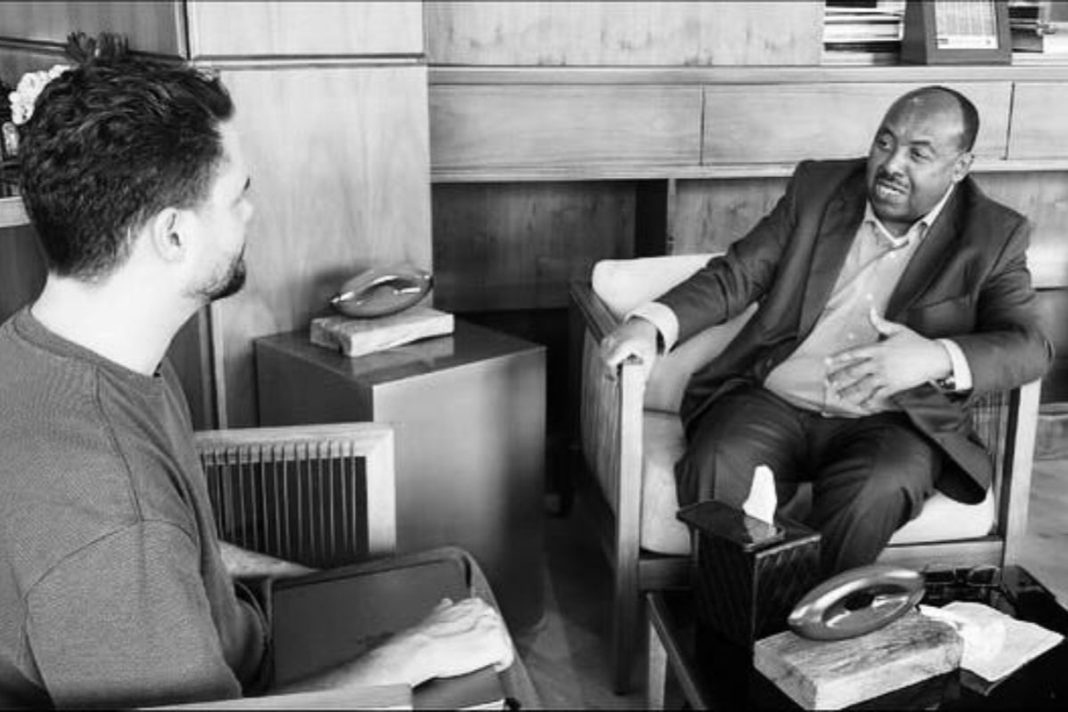After years of conflict, Ethiopia is betting on dialogue to chart a sustainable path to peace and stability. Veteran diplomat Mohamoud Dirir Gheddi, a senior voice in the National Dialogue Commission attempting to bring together political parties, communities, and diaspora voices after the two-year war in Tigray that killed as many as 600,000 people, explains what is at stake.Ethiopia, famed for its three-thousand-year-old recorded history, gave rise to some of Africa’s oldest societies. It is the continent’s oldest independent country. Yet, its modern story is marked by recurring battles over identity, power, and belonging.
After the fall of the Derg regime in 1991, the Tigray People’s Liberation Front (TPLF) rose to prominence, dominating the coalition that ran Ethiopia for nearly three decades. In 1995, the government introduced an ethnic federal constitution that gave Ethiopia’s many groups wide autonomy, even a right to secede.
While that system was meant to protect diversity, it hardened ethnic politics. Tensions mounted, and by the mid-2010s, protests against marginalisation pushed Abiy Ahmed into office.
Abiy’s centralising reforms quickly brought him into conflict with the TPLF. According to the BBC, mistrust boiled over in 2020, sparking a devastating two-year war in Tigray that killed as many as 600,000 people.
The conflict also drew in Eritrea, whose troops fought alongside Ethiopia’s federal forces. This blurred the line between civil war and interstate war, deepening mistrust. The Pretoria Agreement, signed in 2022, ended the worst of the fighting, but many provisions remain fragile.
Now, Ethiopia is trying a different path. With elections due in 2026, the National Dialogue Commission (NDC) is attempting to bring together political parties, communities, and diaspora voices. Its mandate: to reimagine Ethiopia’s political future, including the federal system itself.
To understand what is at stake, bird contributor Jim Stenman spoke with veteran diplomat Mohamoud Dirir Gheddi, a Somali Region native and former Ethiopian ambassador to Egypt, who now serves as one of the commission’s senior voices.
JIM STENMAN: How do you define the goal of the national dialogue, and what would success look like?
DIRIR: Ethiopia is passing through one of its most challenging moments in modern history, but Ethiopians have a culture of surmounting challenges. The objective is to create a space for all the different ideas and challenges that menace the country’s future, armed groups, the baggage of the past, and the big questions of nation- and state-building, so we move forward through discussion rather than force.
Was there a moment that surprised you during this process?
Seeing a formerly armed group from Oromia come into a session was very emotional for me. They were not armed in the room, but were known to have been armed. Watching them sit at the table mattered.
Some skeptics worry this is box-ticking after the war in Tigray. Why should they trust the process?
Skeptical opinions are free, provided no one seeks to impose on others using force. The larger picture is fatigue with conflict. People want a peaceful Ethiopia where all citizens are equal under the law and where the rule of law is respected by all.
Is the constitution, including Article 39, on the table?
Everything is on the table. We are not prescribing agendas. The agendas belong to the people, who shall be free to go through the process in a participatory, inclusive manner.
How inclusive is participation so far? Who is in the room, and who isn’t?
More than 15 political parties are part of the process, including opposition groups. Some parties remain aloof; we continue to call on them to join, it takes political goodwill. Beyond parties, participants include intellectuals, opinion-makers, elders, traditional leaders, women, people with disabilities, displaced persons, and others marginalised by historical or social stigma.
Where has the commission engaged the diaspora, and what comes next?
We engaged communities in Washington and Toronto, with sessions planned in London and Stockholm. Where we have not reached physically, we will continue through Zoom.
What role does the diaspora play, especially for those who may no longer hold Ethiopian citizenship?
The diaspora matters. Look at their support for the Grand Ethiopian Renaissance Dam. They invest, bring knowledge and entrepreneurship and capital, create jobs, and remain connected to their communities.
When might the convention in Addis Ababa happen?
We are close to holding the National Dialogue Convention in Addis Ababa. Once we finalize the diaspora engagement and the outstanding work related to Tigray, we will announce it. It could be in a matter of months. People are standing on their toes.
What about consultations in areas where security is fragile?
One of the principles of a national dialogue is not to harm. We weigh the peace and security of communities, not only our own, before we go.
How do you balance elite voices in Addis Ababa with grassroots concerns elsewhere?
Ethiopia is vast and diverse, but from the agendas we’ve gathered there are striking similarities and a very strong desire to surmount the crisis. A new trend is the recognition that arms are not the solution – dialogue is – and we want that to become the political culture.
How will recommendations be followed up once issued?
The proclamation establishing the Ethiopian National Dialogue Commission promulgates clearly that the follow-up mechanism shall be set by the Commission. We will be candid and open with communities about where things are heading.
I know you can’t recommend a specific outcome, but how much of a challenge is the federalist system itself?
This country has survived monarchy, communism, federalism, and war. Now we need to survive each other, and move forward.
With additional reporting by Bonface Orucho, bird story agency




